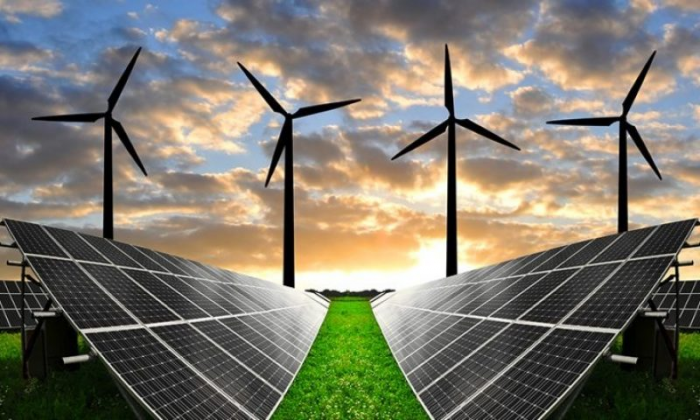RES-E support schemes are usually promoted through the Environmental Protection and Energy Efficiency Fund (FZOEU, Fond za zaštitu okoliša i energetsku učinkovitost) and several other institutions, namely the Croatian Bank for Reconstruction and Development (HBOR, Hrvatska banka za obnovu i razvitak), the Croatian Agency for SMEs, Innovations and Investments (HAMAG BICRO, Hrvatska agencija za malo gospodarstvo, inovacije i investicije), and the European structural and investment funds. FZOEU funds are awarded exclusively through public tenders usually lasting for a specified amount of time, so there are no support schemes running continuously for multiple years from the Environmental Protection and Energy Efficiency Fund. Consequently, there are currently no open tenders for private citizens for supporting production of electricity from renewable energy sources (RES-E). There are plans for publishing a RES-E public tender for private citizens in the second half of 2021. Currently, only the public and private sector can obtain support for RES-E from HBOR through low-interest loans. Feed-in tariffs (FIT; zajamčena otkupna cijena) and Feed-in Premiums (FIP; tržišna premija) are awarded only through tender procedures operated by the Croatian Energy Market Operator (HROTE, Hrvatski operator tržišta energije). HROTE awards FITs and FIPs through public tenders published at least once a year. Since legislative changes, which defined the existing producer support system on 1st January 2016, the first public tender was finally published in November 2020. However, there are currently no open tenders for awarding of FITs or FIPs. There are plans for publishing public tenders in the second half of 2021. If a large solar or wind RES power plant project does not try to contend for awarding of the FIT or FIP, a lower standard/referent price (RC, Referentna cijena) will be awarded. This is going to make the project less profitable in comparison with the FIT or FIP price. The RC is based on the Tariff System for the Production of Electricity from Renewable Energy Sources and Cogeneration, OG 133/13, 151/13, 20/14, 107/14, 100/15 (Article 3, par. 2, item 16; Article 5, par. 10.), and it currently stands at 0.53 HRK/kWh (ca. 0.07 EUR/kWh). There is a RES-E obligation for new buildings obliging every new building to adhere to the nZEB (nearly zero energy building) standard. A building can obtain the nZEB energy certificate only if the energy performance of a building and the share of renewable energy sources meet the general requirements for nearly zero energy buildings. A net metering system is applicable to electricity-producing consumers (prosumers). Produced electricity must be used primarily for own consumption. Also, the net metering system is applied differently for the commercial sector (business and industry) and differently for the household sector. The Integrated National Energy and Climate Plan for the Republic of Croatia for the period 2021-2030 sets a national RES target of 63.8% in the gross direct consumption of electricity.
Summary of support system
- Loan for Public and Private sector investments – the low-interest loans for financing production of own electricity from renewable energy sources with the goal of reducing energy costs are managed by the Croatian Bank for Reconstruction and Development (HBOR). Entities from areas affected by the 2020 earthquakes can achieve a further reduction of the interest rate.
- Investment Loans for Rural Development - the low-interest loans for financing production of own electricity from renewable energy sources with the goal of reducing energy costs are managed by the Croatian Bank for Reconstruction and Development (HBOR). Entities from areas affected by the 2020 earthquakes can achieve a further reduction of the interest rate.
- Tenders for Feed-in tariffs - The Croatian Energy Market Operator (HROTE) operates the tenders. The tenders for Feed-in tariffs are available only for projects with up to 500 kW of installed power
- Tenders for Premium Tariffs - The Croatian Energy Market Operator (HROTE) operates the tenders.
- Net-metering - The net metering system is applied differently for prosumers in the commercial sector (business and industry) and differently for the household sector. Prosumers in the household sector must not produce more electrical energy than they consume in a calendar year. Prosumers in the commercial sector are allowed to produce more electrical energy than they consume, but the installed power must not be greater than the contracted power of the consumer.
- RES-E building obligations - RES-E building obligation is a nZEB (nearly zero energy building) obligation, which is implemented through the Building Act and other technical regulations.
Competent authorities
Fond za zaštitu okoliša i energetsku učinkovitost, FZOEU Hrvatska banka za obnovu i razvitak, HBOR Hrvatska agencija za malo gospodarstvo, inovacije i investicije, HAMAG BICRO Hrvatski operator tržišta energije, HROTE

